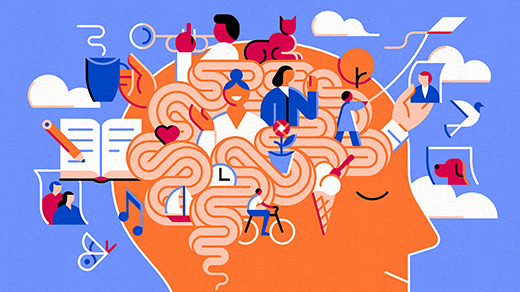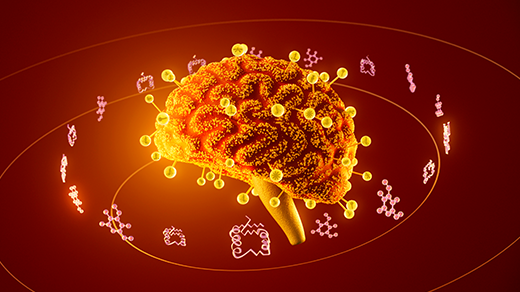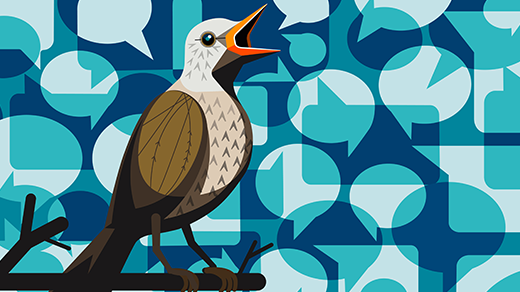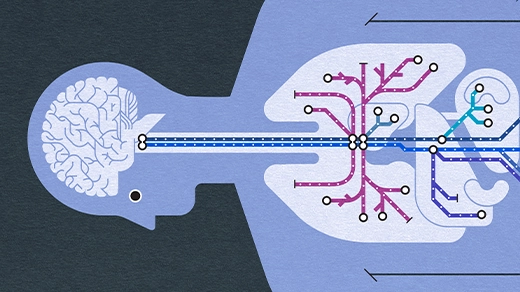What's up in
Neuroscience
Latest Articles
Concept Cells Help Your Brain Abstract Information and Build Memories
Individual cells in the brain light up for specific ideas. These concept neurons, once known as “Jennifer Aniston cells,” help us think, imagine and remember episodes from our lives.
The Year in Biology
Biologists used artificial intelligence to make discoveries about molecules and the brain, and overturned long-held assumptions about the immune system and RNA.
What Can Birdsong Teach Us About Human Language?
We often consider spoken language to be a feature that distinguishes humans from other forms of animal life. Brain research, however, suggests that other creatures — including certain birds — share some of our neural circuitry related to language. In this episode, co-host Janna Levin explores the origins and underlying mechanisms of human speech and birdsong with neurobiologist and geneticist Erich Jarvis.
How the Human Brain Contends With the Strangeness of Zero
Zero, which was invented late in history, is special among numbers. New studies are uncovering how the brain creates something out of nothing.
How Our Longest Nerve Orchestrates the Mind-Body Connection
Like a highway system, the vagus nerve branches profusely from your brain through your organs to marshal bodily functions, including aspects of mind such as mood, pleasure and fear.
What Happens in a Mind That Can’t ‘See’ Mental Images
Neuroscience research into people with aphantasia, who don’t experience mental imagery, is revealing how imagination works and demonstrating the sweeping variety in our subjective experiences.
The Brainstem Fine-Tunes Inflammation Throughout the Body
The evolutionarily ancient part of the brain that controls breathing and heart rate also regulates the immune system — a discovery about the brain-body axis made by experts on taste.
The New Math of How Large-Scale Order Emerges
The puzzle of emergence asks how regularities emerge on macro scales out of uncountable constituent parts. A new framework has researchers hopeful that a solution is near.
Can Psychedelics Improve Mental Health?
Research suggests that psychedelic drugs can reopen critical periods of brain development to create opportunities for re-learning and psychological healing. In this episode, co-host Janna Levin speaks with Gül Dölen, a neuroscientist studying the therapeutic potential of psychedelic substances.








